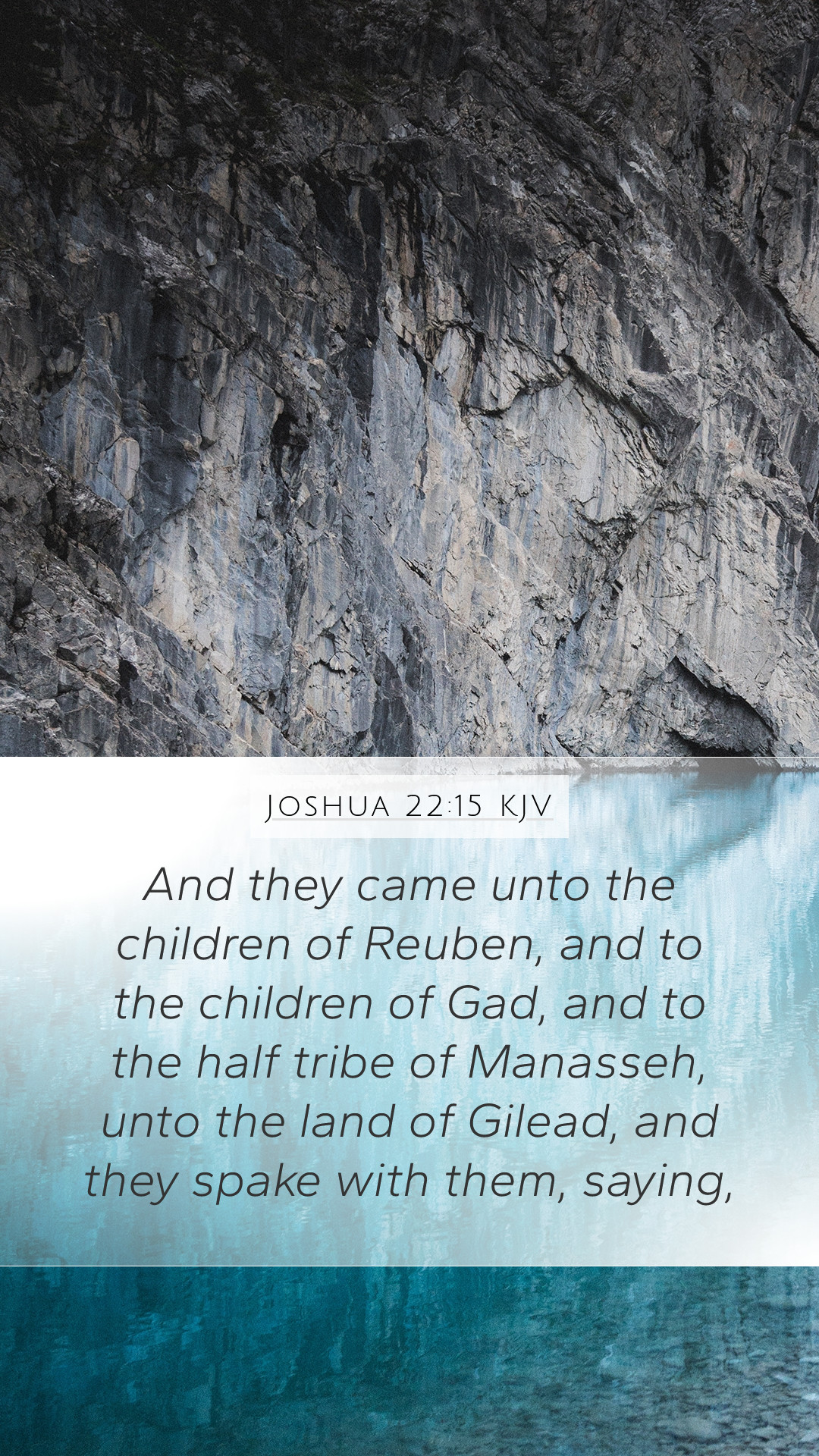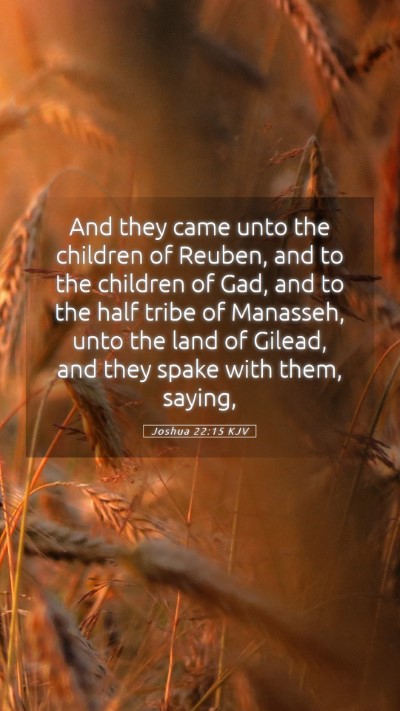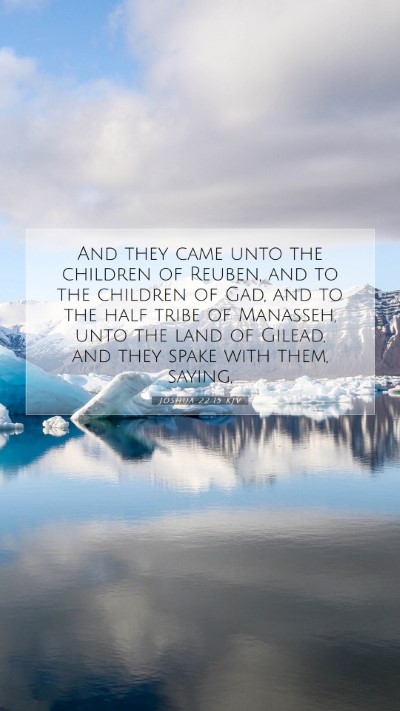Bible Verse Meaning: Joshua 22:15
Joshua 22:15 states, "And they came unto the children of Reuben, and to the children of Gad, and to the half tribe of Manasseh, unto the land of Gilead; and they spake with them." This verse highlights a significant assembly of the leaders from other tribes of Israel meeting with the tribes of Reuben, Gad, and the half-tribe of Manasseh.
Understanding the Context
This passage occurs in the broader context of the Israelite settlement in the Promised Land. After the conquests outlined in the earlier chapters of Joshua, these tribes had settled on the eastern side of the Jordan River, which stirred concerns among the other tribes about their commitment to the collective covenant with God.
Commentary Insights
- Matthew Henry Commentary: Henry emphasizes the collective responsibility of the Israelites to maintain unity in worship and obedience to God. The concern behind this assembly was about faithfulness to God’s covenant. He suggests that communication and dialogue were essential in ensuring all tribes remained committed to shared values and loyalty to God.
- Albert Barnes' Notes: Barnes points out that this meeting symbolizes the importance of addressing misunderstandings directly. The leaders recognized the potential for discord and took proactive steps to maintain unity and ensure that the tribes on the eastern side were not seen as a division among the Israelites.
- Adam Clarke's Commentary: Clarke explains that the land of Gilead was not just a geographical designation, but also significant in understanding the inherited promises to the tribes. His analysis indicates that the tribes were fulfilling their obligations as part of the larger community of God's people, reaffirming their identity and purpose in a divine covenant.
Key Themes
- Unity and Community: The verse illustrates the significance of unity among God’s people, highlighting the need for open dialogue to resolve conflicts or misunderstandings.
- Communication: The direct approach taken by the representatives signifies the necessity of addressing issues promptly to avoid division.
- Covenant Faithfulness: The interactions emphasize the commitment to God’s covenant, reinforcing that all tribes should collectively adhere to God’s commandments.
Application in Daily Life
For modern readers, Joshua 22:15 serves as a reminder of the importance of maintaining unity in communities of faith. It encourages believers to communicate openly and address concerns before they escalate into more significant issues. Additionally, it underscores the idea of collective responsibility toward God’s commands and how individual actions impact the wider community.
Cross References
- Deuteronomy 3:12-17: Details the territorial allotments for the tribes east of the Jordan.
- Joshua 1:12-15: Addresses the commitment of Reuben, Gad, and Manasseh to assist the other tribes in their battles for the Promised Land.
- Hebrews 10:24-25: Encourages believers to stir one another towards love and good works through fellowship.
Conclusion
The meeting in Joshua 22:15 is not merely historical but also serves as a vital lesson in communal faithfulness, communication, and the collective nature of worship and obedience to God. Each interpretation enriches our understanding of the scriptural teachings, leading to profound insights beneficial for Bible study groups and individual seekers of Bible verse meanings. This scripture engenders thought around interpersonal relationships in the faith community and the necessity of unity in fulfilling God’s will.


